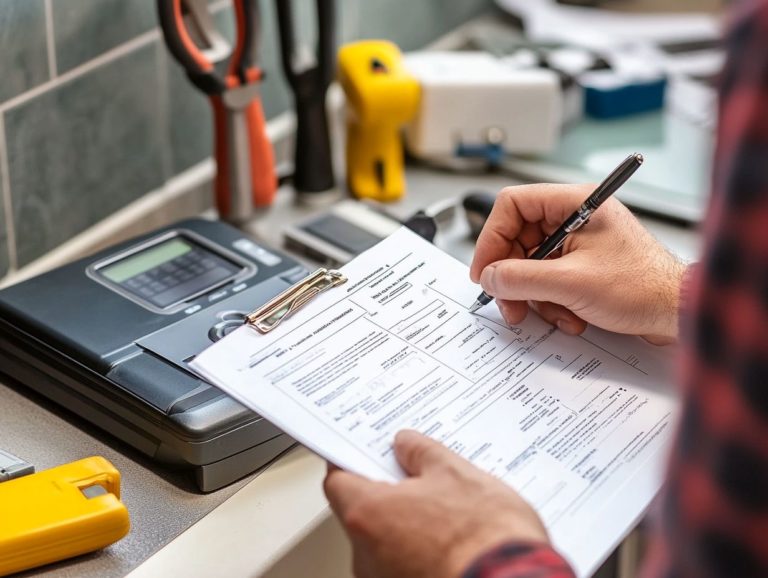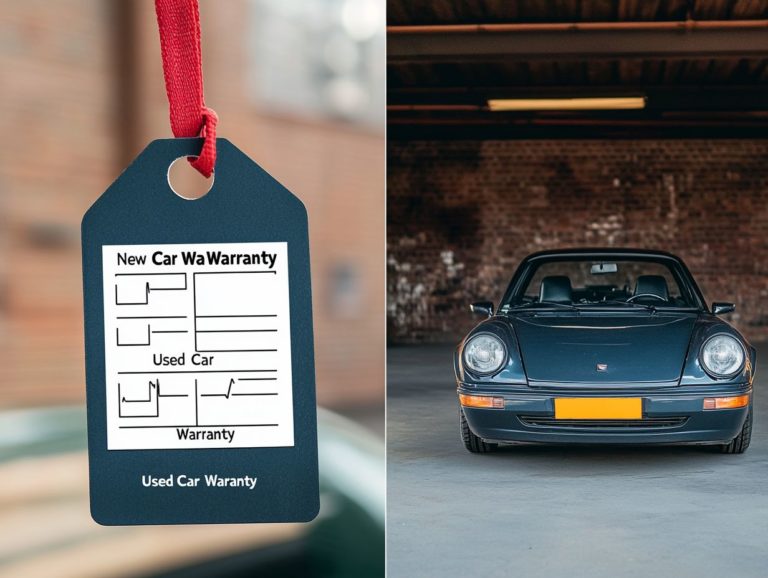5 Car Warranties to Consider for Older Vehicles
Navigating the world of car warranties can feel overwhelming, especially when you own an older vehicle. As your trusted companion on the road begins to show its age, ensuring its longevity becomes increasingly important.
This article explores five types of car warranties specifically designed for older cars from manufacturer options to distinctive aftermarket solutions. It highlights key factors to consider when selecting a warranty, the benefits it offers, potential drawbacks, and how to determine if a warranty is the right fit for your vehicle.
Whether you’re a seasoned driver or new to car ownership, understanding these warranties can save you both time and money in the long run.
Contents
- Key Takeaways:
- 1. Extended Warranty from the Manufacturer
- 2. Aftermarket Extended Warranty
- 3. Certified Pre-Owned Warranty
- 4. Powertrain Warranty
- 5. Mechanical Breakdown Insurance
- What Is a Car Warranty and Why Is It Important for Older Vehicles?
- What Are the Different Types of Car Warranties Available?
- What Factors Should Be Considered When Choosing a Car Warranty for an Older Vehicle?
- What Are the Benefits of Having a Car Warranty for an Older Vehicle?
- What Are the Potential Drawbacks of Having a Car Warranty for an Older Vehicle?
- How Can a Car Owner Determine If They Need a Car Warranty for Their Older Vehicle?
- Frequently Asked Questions
- 1. What are the top 5 car warranties to consider for older vehicles?
- 2. What is a powertrain warranty?
- 3. Is a bumper-to-bumper warranty worth it for an older vehicle?
- 4. Why consider a corrosion or rust warranty for an older vehicle?
- 5. What does a roadside assistance warranty cover?
- 6. How does an extended warranty benefit an older vehicle?
Key Takeaways:
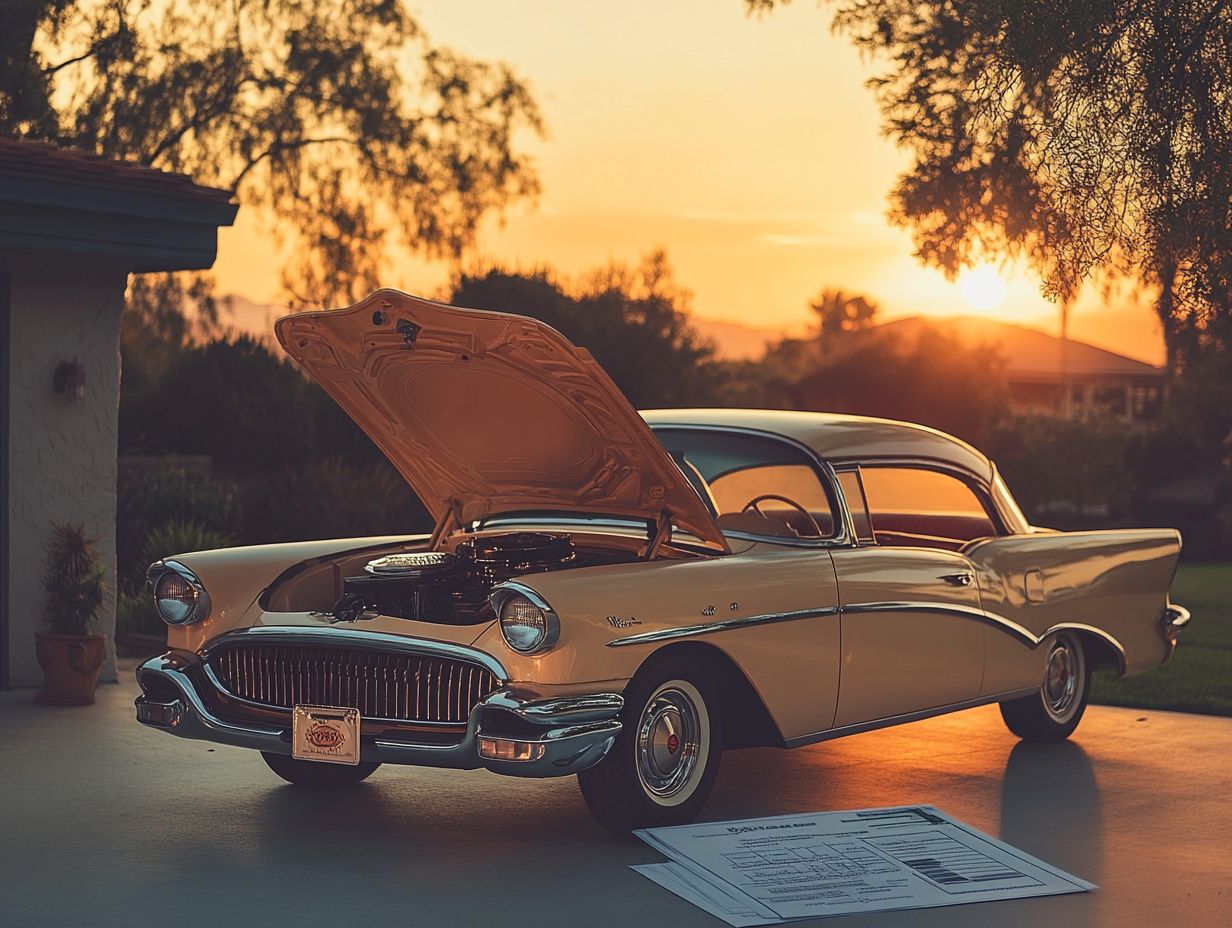
Get extended manufacturer coverage for older vehicles!
1. Extended Warranty from the Manufacturer
An extended warranty from the manufacturer is crucial for vehicle owners, particularly in today s unpredictable economy. It covers essential repairs and mitigates unexpected costs, offering you peace of mind amidst rising concerns about vehicle reliability and safety, especially in areas like North Carolina.
These warranties extend the coverage of your original manufacturer’s warranty, ensuring that unforeseen breakdowns and repairs won t lead to financial strain. This additional layer of protection is simply invaluable for those in regions like North Carolina where the weather can take a toll on vehicles.
Not only do they protect you from significant repair bills, allowing for effective budgeting, but they also ease worries about how vehicle issues could impact broader economic challenges. This is particularly relevant when considering the hidden medical costs that can arise from roadside emergencies or accidents.
With an extended warranty, you can navigate your daily commutes and weekend adventures with enhanced confidence, knowing you re supported by comprehensive coverage.
2. Aftermarket Extended Warranty
Aftermarket extended warranties boost your protection by offering additional coverage options that enhance the basic protections provided by manufacturer warranties. They address various repair needs before unexpected maintenance costs arise.
These alternative plans often serve as a more affordable option, allowing you to choose from a range of coverage types tailored to your specific requirements. Unlike standard warranties, which may only cover major repairs and defects, aftermarket options can include maintenance services such as oil changes, tire rotations, and other routine check-ups that manufacturers typically overlook.
This flexibility helps you manage long-term vehicle expenses and provides peace of mind, knowing different aspects of car maintenance are covered. In essence, these warranties can be a smart investment for anyone looking to avoid future financial surprises.
3. Certified Pre-Owned Warranty
A certified pre-owned warranty offers essential vehicle coverage, ensuring that the car you re considering has undergone a thorough inspection and meets specific quality standards. This can lead to substantial savings for you in the long run.
The qualifications for these warranties often include mileage limits, model year restrictions, and a comprehensive checklist covering everything from mechanical systems to cosmetic appearance. When a vehicle passes this rigorous evaluation, it signifies a commitment to quality and can offer you greater resale value down the line.
Unlike non-certified options, which may harbor hidden flaws and lack assurances, these warranties provide substantial peace of mind. Knowing that the vehicle has been thoroughly vetted alleviates concerns about unexpected repairs, allowing you to make a much more confident purchase decision.
Find the right warranty today to protect your investment!
4. Powertrain Warranty
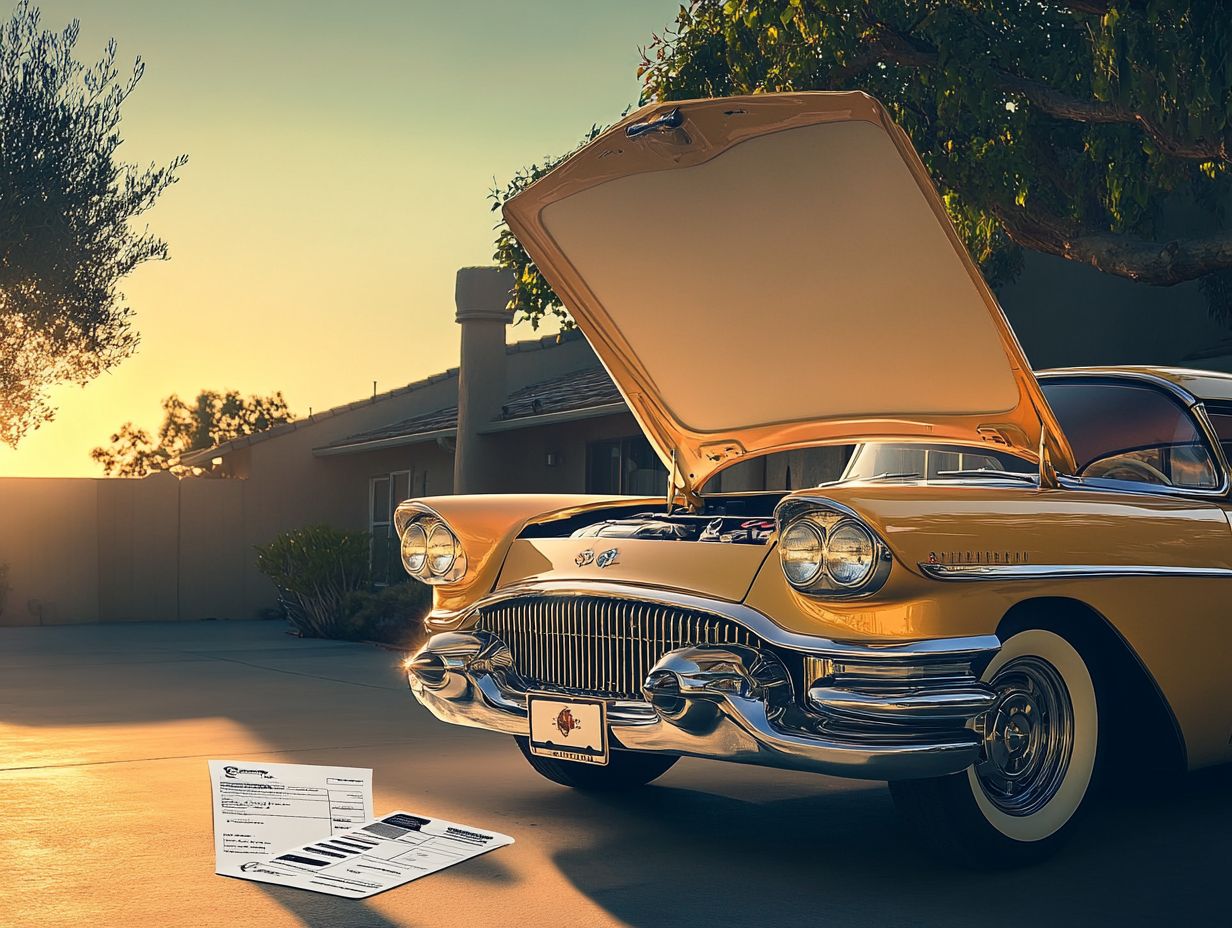
A powertrain warranty protects the critical components of your vehicle s engine and transmission. It offers essential coverage against potentially costly repairs as your car ages.
This warranty extends to parts like the engine block, transmission, driveshaft, and differentials. If these components fail, you can seek repairs without hefty out-of-pocket expenses.
This protection is crucial. It safeguards your vehicle s performance and enhances its longevity, giving you peace of mind during long drives or daily commutes.
Common issues include transmission fluid leaks, engine overheating, and faulty drive axles. These problems can lead to substantial repair bills if not addressed promptly. With this warranty, you can feel confident in your investment and enjoy the journey.
5. Mechanical Breakdown Insurance
Mechanical breakdown insurance offers a distinctive layer of protection against unexpected repairs. It can be more cost-effective than traditional warranties and is tailored to your specific needs.
Unlike extended warranties, which often restrict coverage to specific parts or services, this insurance covers a broader range of repairs for mechanical problems that arise from normal wear and tear.
This flexibility makes it an attractive option, especially for older models or high-mileage vehicles. By opting for this insurance, you can save money on surprise repair bills, ensuring peace of mind and financial security. Many policies even offer no deductible options, allowing you to access the coverage you need easily.
What Is a Car Warranty and Why Is It Important for Older Vehicles?
A car warranty is a vital safety net for your older vehicle. It shields you from unexpected repair costs that can cause financial anxiety, especially in a fluctuating economy. However, it’s important to understand the truth behind car warranties, as there are 5 myths about used car warranties that can mislead consumers.
As your vehicle ages, wear and tear becomes inevitable. Warranties are essential if you’re considering a pre-owned car. To get the best value, explore 5 ways to save money on car warranties, as different types like powertrain, bumper-to-bumper, and extended warranties offer varying coverage levels.
Powertrain warranties safeguard critical components like the engine and transmission. In contrast, bumper-to-bumper warranties provide comprehensive protection for most parts. This layered protection is not just a financial buffer; it grants you peace of mind, knowing you can rely on your vehicle without the threat of exorbitant repair bills.
What Are the Different Types of Car Warranties Available?
Various types of car warranties are available, each offering different coverage levels tailored to specific needs. Understanding your options is essential to avoid unexpected costs.
Manufacturer warranties often come standard with a new car purchase, providing extensive coverage for a specified period or mileage. This ensures peace of mind during the initial months of ownership.
Aftermarket warranties can be acquired separately, allowing you to customize coverage beyond the manufacturer s warranty, though benefits can vary widely.
Powertrain warranties focus on crucial components like the engine and transmission, delivering robust protection against major repairs. Meanwhile, mechanical breakdown insurance covers gaps left by standard warranties, addressing a broader range of potential issues.
Each type has its pros and cons, making it essential to evaluate what aligns best with your driving habits and potential risks. Don’t wait for a costly repair; learn about these warranties now!
What Factors Should Be Considered When Choosing a Car Warranty for an Older Vehicle?
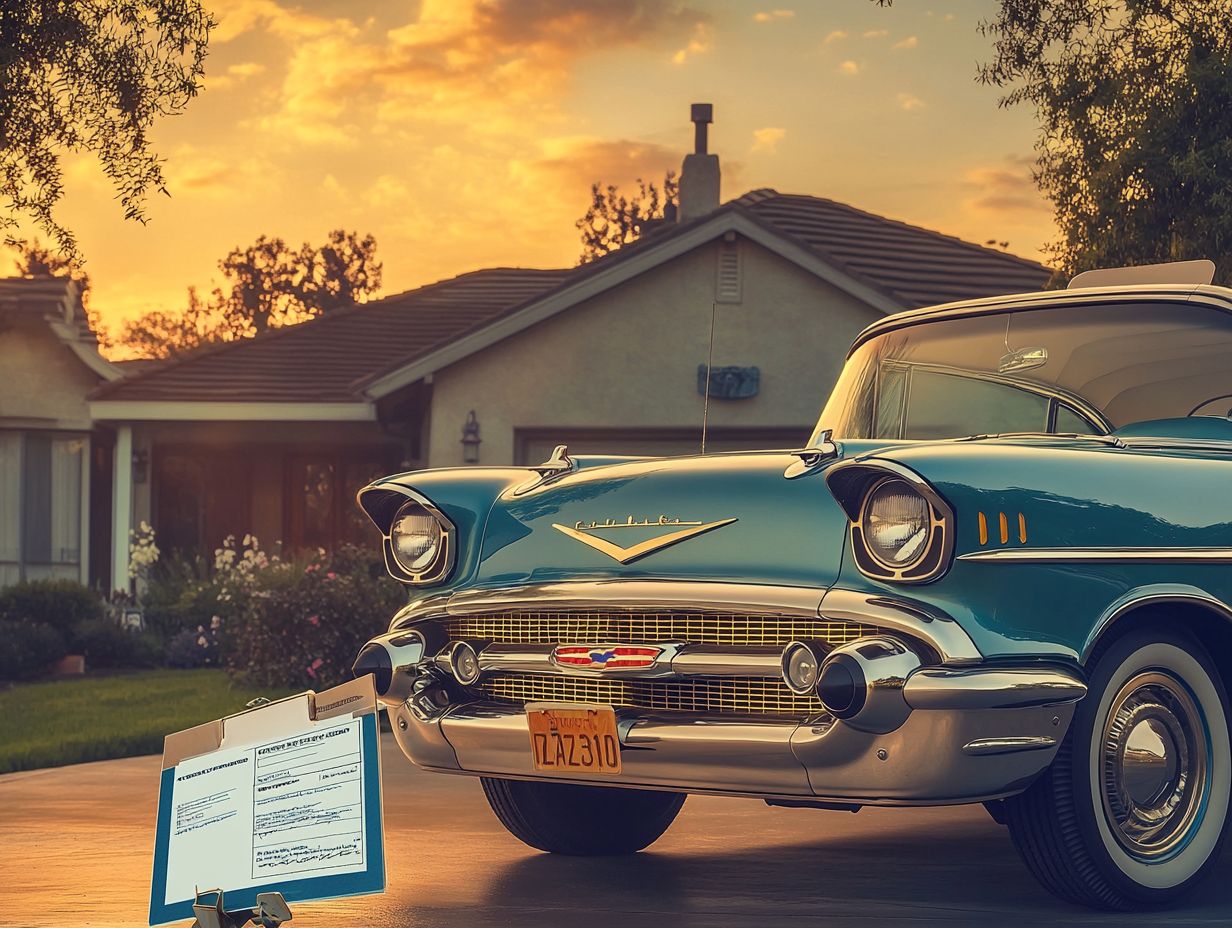
Choosing a car warranty for your older vehicle requires thoughtful consideration of several factors, including coverage options, costs, and your vehicle’s specific needs. For more guidance, check out these 5 essential tips for navigating car warranties to ensure optimal protection against future repairs.
For example, the age of your vehicle significantly impacts the type of warranty you should consider; older cars often face wear and tear, making it essential to select a comprehensive plan that covers critical components like the engine and transmission. You ll want to analyze potential repair costs, as some vehicles are notorious for expensive upkeep, which might lead you to lean toward a more extensive warranty.
Your personal financial circumstances are also key. If you re working with a tight budget, opting for a more economical warranty with basic coverage could be the smarter choice. Taking all these factors into account will guide your decision-making process, helping you strike the right balance between managing risk and staying within your budget.
What Are the Benefits of Having a Car Warranty for an Older Vehicle?
Having a car warranty for your older vehicle offers a wealth of advantages, particularly when it comes to shielding you from unexpected repair costs. In fact, there are 5 hidden benefits of extended car warranties that can provide additional peace of mind. This financial protection can relieve the stress of worrying about costly repairs for car owners concerned about the reliability of their aging rides.
With such warranties, you can budget effectively for maintenance expenses, allowing you to prepare for necessary repairs without the jarring surprise of sudden costs. Access to certified repair services ensures that any work done on your vehicle meets high standards, which becomes increasingly important for older cars that may need specialized expertise.
Additionally, a warranty can enhance your vehicle’s resale value. Potential buyers often view a warranty as a mark of reliability and care, making your car a more attractive option in a competitive market.
What Are the Potential Drawbacks of Having a Car Warranty for an Older Vehicle?
While car warranties for older vehicles can bring substantial benefits, they also come with potential drawbacks that may leave you feeling somewhat frustrated. One significant concern is the high costs and the limitations on what repairs are covered.
Many warranties impose exclusions that can catch you off guard. For instance, wear-and-tear parts like brake pads or batteries are often not covered, even though these components are more prone to failure as your vehicle ages. Additionally, some plans come with deductibles, which is the amount you pay out of pocket before your warranty kicks in, that can add to your overall expense. Imagine a scenario where your transmission fails, and your warranty has a $500 deductible suddenly, you find yourself facing a hefty bill despite having that warranty in place.
Coverage might not apply in specific situations either, such as when your vehicle has undergone changes made to the vehicle that weren t included when it was built or if you ve neglected regular maintenance. This can lead to further disappointment for those who believed they were fully protected. Understanding these nuances is essential to navigating the world of car warranties effectively.
How Can a Car Owner Determine If They Need a Car Warranty for Their Older Vehicle?
Determining whether to purchase a car warranty for your older vehicle requires a thoughtful assessment of its current condition, your repair budget, and the potential costs of possible mechanical issues that could arise. For helpful insights, check out 5 essential tips for understanding car warranties.
By considering factors such as the vehicle s age, accumulated mileage, and repair history, you can gain a clearer understanding of the coverage you might need. A thorough analysis gives you the power to make informed decisions, balancing the risks of unexpected repairs against the peace of mind that a warranty offers.
Reflecting on your financial situation and anticipated repair expenses can further guide you. If you own a well-maintained vehicle, the urgency for a warranty may diminish. Conversely, if your car has frequent trips to the mechanic, this could mean it’s time to get some extra protection now.
Frequently Asked Questions
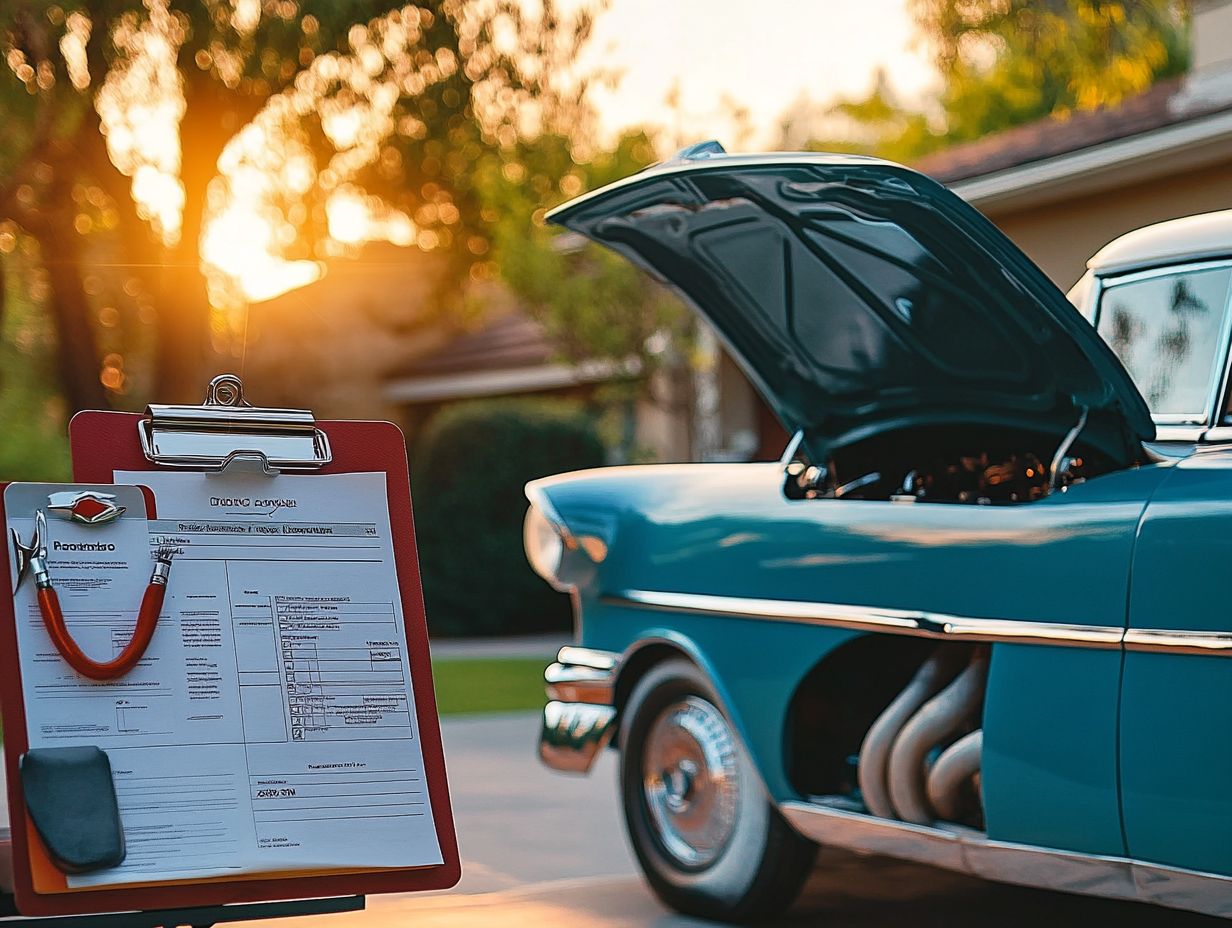
1. What are the top 5 car warranties to consider for older vehicles?
Consider these top 5 car warranties for older vehicles: a powertrain warranty, a bumper-to-bumper warranty, a corrosion or rust warranty, roadside assistance, and an extended warranty.
2. What is a powertrain warranty?
A powertrain warranty covers critical parts like the engine, transmission, and the components that help your car move. It’s vital for older vehicles since these parts can wear out over time.
3. Is a bumper-to-bumper warranty worth it for an older vehicle?
Absolutely! A bumper-to-bumper warranty covers nearly all parts of your vehicle, including electronic systems and interior components. This can protect you from many potential issues.
4. Why consider a corrosion or rust warranty for an older vehicle?
Older vehicles are at higher risk for rust and corrosion, especially after facing tough weather. A rust warranty can save you from costly repairs down the road.
5. What does a roadside assistance warranty cover?
A roadside assistance warranty typically includes services like towing, flat tire changes, fuel delivery, and lockout help. This is especially handy for older cars that might break down more often.
6. How does an extended warranty benefit an older vehicle?
An extended warranty boosts the coverage of your original one, offering extra protection for your older vehicle. This helps you avoid surprise repairs and enjoy peace of mind while driving.

